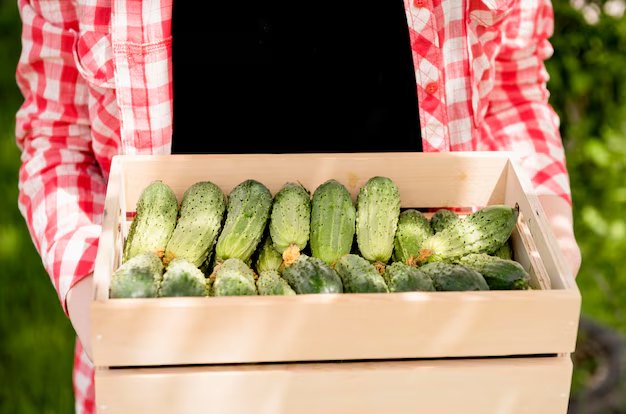Discover the Best Ways to Store Eggplant in Your Refrigerator
When it comes to storing fresh produce, eggplant often presents a unique challenge. With its glossy purple exterior and a spongy interior, eggplant is a versatile vegetable that can be used in a variety of dishes, from ratatouille to baba ganoush. However, improper storage can lead to a shortened shelf life, affecting its taste and texture. Let’s delve into the best practices for storing eggplant in the refrigerator, ensuring it remains as fresh and delicious as the day you bought it.
Why Proper Storage Matters
Eggplants, also known as aubergines, are sensitive to temperature and require the right storage conditions to maintain their quality. Storing eggplant correctly can preserve its nutrients, flavor, and texture, allowing you to enjoy it in all your favorite recipes without compromising on taste or health benefits.
Understanding Eggplant's Characteristics
Eggplants are delicate and react to temperature changes and bruises. They are best kept in environments that are moderately cool, but not too cold, to prevent them from becoming mushy or developing dark spots. Furthermore, it's important to keep their surface intact, as any breaches can accelerate spoilage.
How to Store Eggplant in the Refrigerator
Selecting the Right Eggplant
Before considering how to store it, selecting a fresh eggplant is key. Look for eggplants that are firm to the touch, with a smooth, shiny skin and no blemishes or soft spots. The stem should be green, indicating freshness.
Prepping for Storage
Once you have a fresh eggplant, there are a few steps to prepare it for the refrigerator:
- Avoid Washing: Do not wash the eggplant before storage. Moisture can lead to decay, so it's best to rinse it only right before cooking.
- Maintain Its Natural State: Keep the eggplant whole rather than cutting it. An uncut eggplant stays fresh longer than one that is sliced.
Storing Eggplant in the Refrigerator
Here are steps to ensure optimal storage in the refrigerator:
- Use the Crisper Drawer: Place the eggplant in the crisper drawer of your refrigerator. This part of the fridge provides a slightly warmer temperature and higher humidity than the main compartment, which is ideal for eggplant.
- Wrap it, But Not Too Tightly: If possible, wrap the eggplant in a paper towel and then place it in a perforated plastic bag or a reusable mesh produce bag. This setup provides the right balance of moisture and ventilation.
- Avoid Odor Absorption: Eggplants can absorb odors easily. Store them away from strong-smelling foods, like onions and garlic, to preserve their natural flavor.
Ideal Temperature and Timing
Refrigeration Temperature: The refrigerator should be set between 45°F to 50°F (7°C to 10°C) for eggplant storage. This temperature range is cool enough to slow down spoilage but not too cold to damage the flesh.
Duration: Typically, eggplant can last about 5 to 7 days in the refrigerator when stored properly. Keeping track of its condition is essential; use it as soon as signs of softening or spotting appear.
Related Subtopics for Deeper Understanding
Freezing Eggplant for Longer Storage
If you have too much eggplant and not enough time to consume it all, freezing is an option:
- Preparation: Peel and slice the eggplant into rounds or cubes.
- Blanching: Boil water, then blanch the slices for about 4 minutes. After blanching, immediately cool them in ice water.
- Freezing: Spread the blanched slices on a baking sheet to freeze them individually before transferring them to airtight containers or freezer bags.
The Impact of Ethylene on Eggplant
Like many fruits and vegetables, eggplants are sensitive to ethylene gas, a natural plant hormone emitted by certain produce such as tomatoes and apples. This gas accelerates ripening and spoilage. To maximize the freshness of your eggplant, store it away from ethylene-producing fruits.
Using Stored Eggplant
With proper storage techniques, your eggplant remains ready for a variety of culinary adventures:
- Ratatouille: A hearty vegetarian dish that allows the flavors of fresh vegetables like eggplant to shine.
- Baba Ganoush: A creamy dip that leverages the smoky flavor of roasted eggplant.
- Stir-fries: Eggplant pairs beautifully with soy sauce, sesame oil, and garlic in a quick vegetable stir-fry.
Keep These Eggplant Storage Tips Handy for Fresh Flavors
Here's a quick summary of the key tips to remember when storing eggplants in the refrigerator:
- 🟣 Select Fresh: Choose firm, shiny eggplants without blemishes.
- 🚫 Do Not Wash: Store them dry until ready to use.
- 🌬️ Crucial Conditions: Use the crisper drawer and wrap loosely for ventilation.
- 🧺 Temperature Control: Keep the refrigerator temperature between 45°F to 50°F.
- 🍏 Avoid Ethylene: Store away from ethylene-producing fruits to prolong freshness.
Storing eggplant properly not only extends its shelf life but also ensures that you're always ready to whip up delicious meals packed with flavor. Understanding the delicate needs of this vegetable can keep your dishes as enticing and nutritious as possible. Whether you’re a casual cook or a culinary enthusiast, these tips will serve you well in getting the best out of your eggplants each time. So, the next time you’re at the market, feel confident picking up those beautiful purple gems knowing how to keep them at their peak of freshness, right in your refrigerator.

